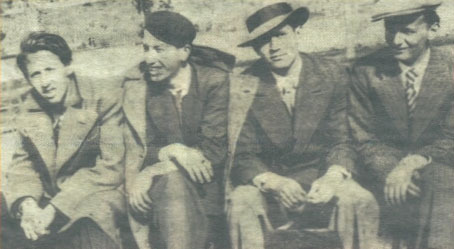Hey fellow bloggers,
Today, just like most of you, I’m going to talk about poetry. I must admit, I’ve never been a big fan of western poetry or poetry written in English. For some reason, I can not find the magic I find in Turkish poetry. That being said, I noticed some similarities both Turkish and English poetry movements on Tuesday’s lecture when we were introduced to language poetry.
But First let me briefly introduce you to the history of Turkish poetry. Poetry was the first form of written literature in the Ottoman Empire. It was written in a very sophisticated language and was limited only to the palace as the general public at the time barely knew how to write and read. The poems were also restricted to some forms and rules concerning syllable choice and count.
With western influence, secularization and increasing literacy (around 19th century), new movements started to form taking poetry outside the palace. What really managed to do that was the Birinci Yeni (First New Movement) or Garip Akimi (Weird Movement) which started with a book called Garip (Weird) written by 3 different poets around mid 20th century. The essential idea was to challenge the classic sensuality and formalism of poetry. The main concern of the poems was about the issues normal people faced. With this movement, traditional poems were highly challenged and forms of the poems started to change significantly.
Right after this came the Ikinci Yeni (Second New Movement) or in a less common term Civil Poetry. This took the first movement to another level with abstract forms, language, and meaning. Some poems are made out of completely innovative page-use and some are made out of jibberish words. What really shocked me was the poem we read on Tuesday. The poem about the flamingo dance, that was described as sounds because that was exactly what Ikinci Yeni did. Many of my favorite poems (that are a part of Ikinci Yeni) convey their message indirectly by the use of words that sound like something else or by a color that is associated with a feeling etc.
What is also amazing that both poetry movements -language poetry and Ikinci Yeni- were used for political purposes. Many poets at the time chose to join the Ikinci Yeni movement to be able to write freely about whatever they wanted. Thus, for some, it was a way of avoiding censorship. I do not yet have enough knowledge or experience with language poetry to make a comparison. However, from what I learnt, I can easily say that both movements seem to be very similar.

The founders of the Birinci Yeni (First New Movement)